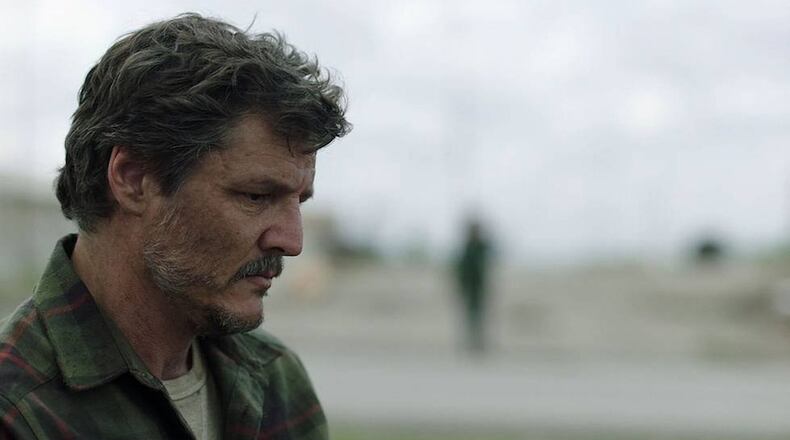Carrying unmistakable, gruesome echoes of “The Walking Dead,” AMC’s longtime zombie-driven hit, “The Last of Us” concerns Joel, a former Texas contractor (superbly portrayed with gruff, no-nonsense finesse by Pedro Pascal). In 2003, Joel, his daughter Sarah (Nico Parker) and younger brother Tommy (Gabriel Luna) wake to unsettling news from Indonesia, ultimately leading to a terrifying evening filled with murderous behavior from neighbors, chaos in the streets and airplanes falling from the sky.
Twenty years later, in an unrecognizable, bombed Boston, a mass fungal infection has left America in shreds. Joel, now smuggling various goods with the help of his partner Tess (Anna Torv), is tapped by the leader of the Fireflies resistance movement (Merle Dandridge) to smuggle 14-year-old orphan Ellie (delightfully chatty Bella Ramsey) out of a quarantine zone and across the country. Ellie’s unique immunity from infection could be humanity’s last hope.
As the nine-episode season continues (Episode 7 airs Feb. 26), Joel and Ellie’s father-daughter bond has grown deeper beyond mere opposites attracting. The duo’s playful, snappy rapport provides much-needed levity (a book of puns humorously complemented an otherwise dark, disturbing and intense Episode 5) but situations have turned as Ellie has discovered the genesis of Joel’s reserved nature, particularly his psychological wounds stemming from the horror of 2003. Joel, fearful of the future and his health, and Ellie, realizing the necessity of maturity, have reached a new stage. What began as a partnership to keep each other alive while navigating the dangers of dilapidated buildings, eerie museums, spooky tunnels and abandoned campuses has evolved into sensitive matters of the heart.
In a refreshing departure from the core Joel-Ellie storyline and brutal zombie fare (zombies here don’t stroll – they sprint!), Episode 3 is outstandingly devoted to the touching story of mega-survivalist Bill (a revelatory, Emmy worthy Nick Offerman) and easygoing Frank (Murray Bartlett). Cemented from a shared admiration for Linda Ronstadt’s 1971 ballad “Long Long Time,” Bill and Frank’s relationship is depicted with great tenderness and affectionate believability, proving the power of love to spark, bloom and thrive when you least expect.
Credit: TNS
Credit: TNS
The storytelling artistry of “The Last of Us” speaks to HBO’s intrinsic ability to create powerful, envelope-pushing, expertly written and acted television on par with what you’d find from major film studios. Family saga “Succession” is the latest Emmy darling but other HBO projects such as “Euphoria,” “Insecure,” “Lovecraft Country,” “Boardwalk Empire,” “I May Destroy You,” “True Detective,” “Watchmen” and “Game of Thrones” have also proudly exemplified the network’s top-notch, risk-taking pedigree. In addition to that celebrated list, I highly recommend the phenomenal, Emmy-winning miniseries “Mare of Easttown,” a riveting murder mystery set in a small Pennsylvania town and starring Kate Winslet, and the underrated gem “The Plot Against America,” a fascinating, 1940s alternate history account about the rise of fascism and antisemitism fueled by Charles Lindbergh’s ascension to the presidency.
As the March 12 season finale approaches, there’s still time to catch up on all the compelling action. Trust me, you don’t have to be a gamer to appreciate the magnitude of this story. You will find a connection to these characters that will keep you on the edge of your seat from start to finish.
Above all, the impactful message “The Last of Us” delivers can be a useful mantra in our everyday life: stay safe, endure and survive.
About the Author


